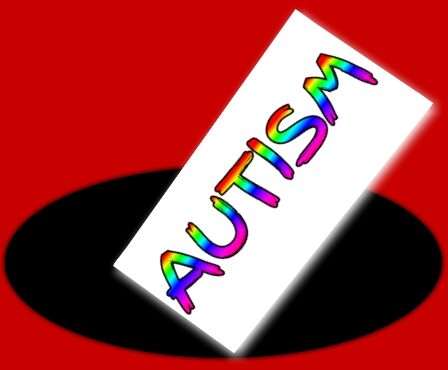A brief introduction to ADHD
What if you had almost infinite energy? What if your perception of time was almost non-existent and your thoughts raced on by and emotions were in a flurry? What if you wanted everything to come at a lightning-fast speed, and you couldn’t sit down for long periods unless you were playing a video game?
This disorder that I have is known as attention deficit hyperactivity disorder (ADHD) and in this blog post, we will explore how I live with this disorder & how it affects my daily life.
What is ADHD and how long does it last?
Attention deficit hyperactivity disorder (ADHD) is defined as a neurobehavioural disorder which is distinguished by executive function deficit and sporadic symptoms that include a lack of concentration, impatience, regulation of emotions, and difficulty with self-control. (Wikipedia contributors, 2024)
This disorder occurs quite frequently and affects individuals regardless of age, ethnicity and gender. As stated by the World Health Organisation (WHO), ADHD impacts about 5% of children and 2.5% of adults worldwide. This implies that there are millions of individuals living with ADHD globally.
Since ADHD is lifelong, individuals who have the disorder cannot grow out of it. Most learn to successfully manage the disorder’s traits and may not meet the criteria for the disorder once they become adults. Some may continue to experience setbacks, but most will lead successful lives. (Cleveland Clinic, 2023)
How I live with ADHD
As a child I was always physically restless and very emotionally dysregulated (meltdowns) because of my attention deficit hyperactivity disorder which meant I would scream for hours while lying on the floor, kicking my legs. The disorder means that I cannot sit down for more than 30 minutes without needing to get up and run or do something else such as jump on a trampoline. This also means that without constant stimulation, I’d become bored very easily. The hyperactivity from age 4 to 16 gradually disappeared as I matured into an adult. These days, I now briskly walk 8 laps around 1 acre of our house which helps regulate my mood.
Attention deficit hyperactivity disorder also makes any activity that required patience a challenge due to my perception of time being altered (slowed down). These challenging tasks include waiting in queues/appointments, traffic jams and even just waiting for my hot chips (French fries) to be cooked as well as many other every day tasks.
For this reason, I often struggled with waiting rooms at hospitals and clinics because these areas often required me to wait for a very long time (more than an hour), which caused me considerable distress if I did not have anything to read or play video games with. This still occurs today but to a much lesser extent because I have learned to manage a lot of my impatience and come prepared with my handheld gaming console.
As mentioned earlier, ADHD warps my perception of time so tasks feel like they are much more drawn out than they would normally be to an individual without the disorder. I understand this as being an analogous to a black hole; the gravitational pull is so strong near the event horizon, that time slows down to a halt, relative from an observer’s perspective (time dilation). This analogy mirrors the impatience and feeling that things are moving too slow in the context of ADHD.

Symptoms of attention deficit hyperactivity disorder
Attention deficit hyperactivity disorder has many symptoms and no two individuals that have this disorder will be affected in the same way. Below are some of the typical symptoms listed:
- Restlessness or sleeping for short periods
- Demanding
- Impatient
- Short attention span
- Intense engagement in an activity (like a video game or something else)
- Inability to concentrate (such as reading this blog post for instance)
- An odd feeling when being asked to focus on something
- Being unreasonably loud
- Hyperactivity
- Excessive talking
- Interrupting conversations
- Difficulty waiting turns
- Reading extremely fast or not reading at all
- Trouble with making informed decisions
- Inability to control emotions
- Racing thoughts
- Hyperfocused
These are some of the numerous symptoms of attention deficit hyperactivity disorder that I have faced. It appears that ADHD is an “all or nothing” disorder (you’re either all engaged in an activity or not at all – there seems to be no middle-ground).
ADHD’s comorbidity with autism
Analysis suggests that 40% of individuals with autism also have ADHD. Current research indicates that the actual rate may be closer to 70%. (Marschall & Eggleston, 2024)
How ADHD correlates with Delayed Sleep Phase Disorder (DSPD)
The majority of people with ADHD, especially teenagers tend to be wide-awake in the evening. This asynchronous routine can impair the ability to perform well at their job or school. It is theorised that a smaller pineal gland along with asynchronous circadian rhythms and slowed melatonin release, may exacerbate delayed sleep phase disorder in individuals who have attention deficit hyperactivity disorder. (Paheco & Dimitriu, 2024).
Because attention deficit hyperactivity disorder can exacerbate the effects of DSPD, I choose not to have anything high in caffeine such as soft drinks (sodas) past 12 PM. This is because we have found that if I consume caffeine too late in the afternoon, it can cause me to stay up all night long. It is very hard for me to realign my circadian rhythm if it gets out of sync with the day/night cycle.
This sleep interference is metaphorically shown below with this rapidly spinning clock:
Tips for managing ADHD
While attention deficit hyperactivity disorder cannot be cured, the disorder can be managed. This list can help in managing the symptoms of the disorder:
- Set aside time each day for exercise.
- The use of video games can help in reducing hyperactivity and keep you occupied.
- Finding some calming music can help reduce hyperactivity by relaxing the mind.
- The consumption of blueberries is known to be extremely good for ADHD due to the high amounts of antioxidants contained inside them.
- Fidget spinners and stress balls (or similar objects) can be useful.
- Trampolines can help with hyperactivity.
- Medication.
Because ADHD affects individuals differently, one or more of these tips that I have provided for managing the disorder may not work on another. These tips are from my own experience with the disorder and should not be taken as medical advice.
Princess Lilli Lilac

Princess Lilli Lilac does help keep my attention deficit hyperactive disorder symptoms at bay to an extent. I find her soft, silky fluff extremely inviting and she helps me relax when I am unable to keep my energy down. We have a very deep friendship with each other and we love each other very much. 💜
Conclusion
Hopefully you may have learned lots about attention deficit hyperactivity disorder (ADHD) and how I live with this disorder. Share your thoughts in the comments below and see you on the next blog post! 🗞
Disclaimer: The information written in this blog post is from my personal experience with ADHD and should not be taken as medical advice. Please consult a medical professional for advice or knowledge on attention deficit hyperactivity disorder (ADHD).
References
Wikipedia contributors. (2024, November 28). Attention deficit hyperactivity disorder. In Wikipedia, The Free Encyclopedia. Retrieved 12:52, December 1, 2024, from https://en.wikipedia.org/w/index.php?title=Attention_deficit_hyperactivity_disorder&oldid=1260096093
Marschall, A., & Eggleston, C. (2024, February 20). Audhd: When autism and ADHD co-occur. https://www.verywellmind.com/what-to-know-about-comorbid-autism-and-adhd-6944530
Pacheco, D., & Dimitriu, A. (2024, April 30). ADHD and sleep problems: How are they related. https://www.sleepfoundation.org/mental-health/adhd-and-sleep
Cleveland Clinic. (2023, February 22). Attention-deficit/hyperactivity disorder (ADHD). Retrieved from https://my.clevelandclinic.org/health/diseases/4784-attention-deficithyperactivity-disorder-adhd
Golden Steps ABA. (2024, September 11). 34 ADHD statistics: How many people have ADHD? Retrieved from https://www.goldenstepsaba.com/resources/adhd-statistics
